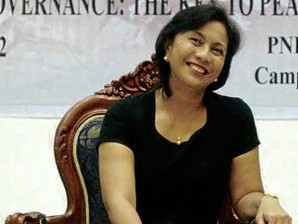Robredo pushes for congressional probe on pork barrel scam
NAGA CITY, Philippines — The widow of Interior Secretary Jesse Robredo will push for an impartial and thorough investigation of the alleged scam that surrounded the implementation of the Priority Development Assistance Fund (PDAF) of senators and members of the House representatives.
Camarines Sur third district Rep. Leni G. Robredo lamented that the irregularities alleged by several whistleblowers in the transactions of businesswoman Janet Lim-Napoles have tainted the institution of Congress as well as its individual members.
“It’s unfair for us who are against corrupt practices to be dragged in the mess. All of us (representatives) must agree to an impartial, fair and deep investigation,” said Robredo.
Robredo saw the need to make a full and transparent investigation because if the constituents had doubts on the investigation, this would bring more damage to the institution.
“For a very long time Congress has suffered a reputation problem. I see something is bad in Congress,” she revealed.
Article continues after this advertisementRobredo who, having captured the country’s admiration for her calm and composure amid the tragic death of her husband last year in a plane crash, went on to win her province’s third congressional district seat against a member of a well-entrenched political clan, Nelly Villafuerte, wife of district’s outgoing Rep. Luis Villafuerte.
Article continues after this advertisementJesse Robredo, then secretary of the Department of the Interior and Local Governments and noted for his commitment to good governance and transparency in government transactions, was heading home to Naga City from an official visit in Cebu when his plane crashed off Masbate City on Aug. 18, 2012.
“I believe that any irregularity in the PDAF will escape the scrutiny of the representatives involved (in the misuse of PDAF),” Jesse’s widow said.
She added that those representatives found involved in the scam must be penalized “for the sake of the institution.”
Robredo, a member of the majority block, said that many lawmakers with the majority agreed with the speech of the House minority leader calling for a congressional inquiry into the misuse of the PDAF.
Robredo said she was initially for the full abolition of the PDAF or the pork barrel because it has been promoting political patronage but, on second thought, after having entrusted with the responsibility of advancing the interests of her district, she changed her mind, saying that the PDAF could be put to good use by ethical lawmakers.
She said the PDAF could be a development tool if it had clear criteria for the projects, like setting up targets and benchmarks for the lists of menu provided for its implementation.
The Department of Budget and Management (DBM) in its National Budget Circular No. 537 issued on February 20, 2012 listed down seven particulars for the project menu and requirements: education, health, livelihood, social services, peace and order, arts and culture and public infrastructure projects.
As general guidelines, the members of Congress identified the priority development programs and projects that are to be funded by PDAF.
It’s “preference shall be given to projects located in the 4th to 6th class municipalities or indigents identified under the National Household Targeting System for Poverty Reduction by the Department of Social Welfare and Development without necessarily excluding other municipalities and beneficiaries.”
The agencies identified to implement the PDAF include national government agencies (NGAs), local government units (LGUs); and government owned and/or controlled corporations (GOCCs).
Under Circular No. 537, “funds shall be released directly to the implementing agencies enumerated in the PDAF Project Menu. However, in the case of LGUs, funds shall be released to the Department of Budget and Management (DBM) as the fund administrator and for GOCCs, funds shall be released to the Bureau of Treasury (BTr).”
Robredo said she would formulate benchmarks and targets in partnership with agencies and entities involved in the implementation of the PDAF to avoid the perpetuation of patronage politics.
“It’s not that those who are near to me will be given a project. It must be based on the performance and achievement of the benchmark we will formulate,” she explained.
